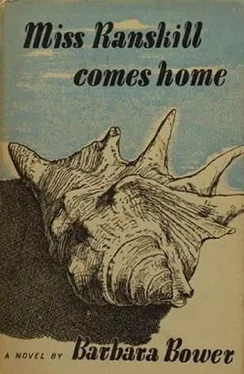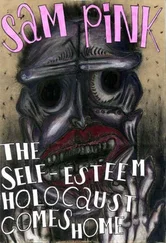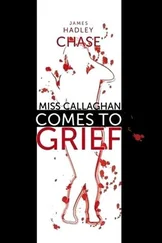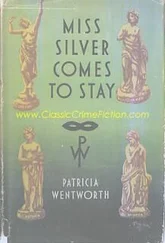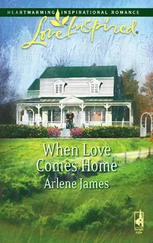So this was where Edith lived, in this contented cottage on an island of flower-bordered lawn. This was where she would live too, she supposed. At any moment the white door might be opened or a window flung up. She put down the cat’s basket and turned to the gate, where stood the boy who had carried her suitcase and tool-bag. She must give him his sixpence so that he could go before the door opened.
But there was no stir from the house, even when the gate had clicked, even while she walked crunchingly up the path, or when her footsteps made the scraper jangle on the flagstone.
She cried, ‘Edith! Edith!’ while her right hand fumbled for the bell-push and her left pounded at the knocker. The clangour of the bell went on for too long: she wanted to hear the running of feet and the creak of the opening door. The silence that followed was too long also, and very unwelcoming. Could she, but then how could she, have missed Edith on that tiny deserted platform? Edith had said in her letter that she would meet the train: the cottage was only two minutes’ walk from the station.
Miss Ranskill rang again, and now the crying of the bell’s voice through emptiness was almost frightening. She knocked until echoes interrupted echoes. Then she went round to the back of the house.
She followed a path that led between shrubs to a small drying-green bordered by currant bushes. Pegged out on the line, as the first proofs of Edith’s habitation, were some underclothes, two striped shirts that she recognised and (signal this time of Edith’s belief in her own death) a very much worn and rather shrunken cardigan of her own. Its colour had faded since the days of peace; it had been clear blue when she had left it behind at home. The little nosegays of flowers on the pockets had been picked off and bright patches showed where they had been. It was all right, of course. It was sensible and practical of Edith to have made use of her clothes. All the same, she need not have flaunted the cardigan on the very day of her homecoming.
‘She’s worn it for a long time too,’ thought Miss Ranskill. ‘She must have begun wearing it almost as soon – anyway, blue never suited her; it always made her look rather sallow. She takes sixes, so she can’t be wearing my shoes.’
She knocked on the back door, rather more sharply than she might have done if she had not seen the line of clothes.
There was something wrong about the ensuing silence. Even if the knock stirred no householder, there should have been the scutter of paws and a bark, sharpened to ecstasy as her voice was recognised. There should have been a bowl of water by the doorstep and a cloth for the drying of feathered pads. Edith was always finicky.
Miss Ranskill stooped down and lifted up the door-mat, but there was no key there. Then she remembered that the door-mat had always been her key-cover and that Edith had used a flower-pot.
‘A door-mat’s so obvious. It’s the first place a burglar would look.’
‘People don’t always think of the obvious. A burglar could get in any way.’
‘A flower-pot’s safer. He’d probably hunt for a bit before smashing the windows.’
‘If he’s going to smash the windows anyway , why not leave the key in the door?’
A butterfly flicked on top of an inverted bee-skep near the door. If she had been a burglar, thought Miss Ranskill, it would probably have given the same delicate hint. She stooped and picked up the key.
The kitchen was very clean, very tidy, but empty of life. She noticed, with a pang, that the old nursery tea-canister with its painting of Queen Victoria, stood on the mantel-shelf. A scar ran across the face of the Queen. She remembered her tears on the day that the new flakes of paint had been sprinkled on the nursery fender. It seemed a very long time ago, and the Queen looked old and more faded now. There was nothing else that she recognised except a little lustre jug standing on a tray on the kitchen table. There were two trays, each with its small sugar basin, jug, teapot, plates and toast-rack.
Her heart warmed towards Edith. Here was the first sign of welcome. The sight of a dish marked ‘puppy’ was heartening too, unless, of course, the spaniel had a successor.
Two places were laid in the little dining-room, but the flat bowl of flowers in the middle of the table puzzled Miss Ranskill as much as the mock Jacobean sideboard. It was unlike Edith to behead monthly roses and cram them together in a shapeless mass like so many dollops of pink blancmange. They had always cut sprays of the monthly roses and set them among the sincere blue of forget-me-nots and the lace of cow-parsley. Edith had added a buttercup or two – ‘pink needs yellow.’ They had arranged flowers as though they were growing – ‘I like to bring the garden indoors.’
The sitting-room was almost frightening in its ugliness. It had yellow-washed walls and powder-blue chair-covers. ‘Sunday school blue,’ thought Miss Ranskill, quoting from her mother and the objections she had raised over their choice of summer ginghams in the nursery days. A mock Jacobean ‘what-not’ was decorated with a scattering of Indian silver knick-knacks. There were anæmic water-colours on the walls. There was an insipid mauve carpet and shiny mauve cushions in the chairs. There were more dollops of flowers – purple and yellow pansies, this time in a black bowl on a walnut occasional table. The sight of her great-grandmother’s sampler suspended from the silver-embossed sheath of a scimitar enraged Miss Ranskill. Edith might have been obliged to take a furnished house, but surely she could have ‘played houses’ in it better than this.
Something was very wrong.
Something else was wrong too. In her stupid disappointment over the colouring of a room and the emptiness of a house, she had forgotten the cat and the three little kittens, still humbly crowded into their basket by the gate. She ran out of the house and along the laurelled path. A countryman was walking down the road that led past the cottage. His shoe-leather creaked, and so did the straps below his knees. ‘A hedger and ditcher,’ thought Miss Ranskill as she noticed the bill-hook laid against his shoulder. Soon, she knew, he would be more than a hedger and ditcher: he would be old so-and-so. She would know all about his family and they would pass the time of day together.
‘’Mornin’, Miss.’ A finger jerked up to his cap peak and Miss Ranskill felt comforted as she returned the greeting. He had come alive through one war and was too old to be touched by this one, except through stabs from the wounds and death of the younger generation; and he had seen too many births of spring and too many deaths of winter to be much affected. The hedges increased and shrivelled, leaf by leaf and fall by fall, and he was as persistent as an old cart-horse. All in good time, all in good time , his footsteps beat out a steady rhythm till the sound of them faded away. A swift shadow from a Spitfire’s wing darkened the chalk of the road ahead of him, but he did not look up as the machine whizzed overhead in its rollicking hurry and dipped a wing towards the fields below.
The kittens were mewing in the basket. Soon they and their mother made a little dappled hearth-rug on the patch of carpet before the fender. The room looked better now.
The telephone bell rang sharply and suddenly and Miss Ranskill looked round the room for it. The jangling summons sent her running into the hall, but it was not there nor in the dining-room. Meanwhile, Edith must be ringing up to explain why she had not met the train.
She ran upstairs, pushed through the half-open door of a bedroom and was greeted by a louder shrilling, which ceased as she snatched the receiver from its hook.
‘Oh! is that you Mrs Phillips?’
Читать дальше
